Psychedelic-Assisted Psychotherapy (PAP)
Home > Journey Clinical
Psychedelic-Assisted Psychotherapy is an exciting new (old) approach to treating some of the most resistant mental health issues we see in society today. Currently, only Ketamine is legal in all 50 states while Psilocybin-Assisted Psychotherapy is beginning in 2025. Journey Therapeutics is dedicated to bringing you safe and effective methods as they become legal throughout the US. We have provided a brief description of each of the approved and hopefully upcoming psychedelics that can offer much needed relief for those suffering from a variety of mental health issues.
Psilocybin-Assisted Psychotherapy.
Psilocybin-assisted psychotherapy is an innovative approach that combines the use of psilocybin, a psychedelic compound found in certain mushrooms, with therapeutic practices to promote mental well-being. This therapy aims to facilitate profound psychological breakthroughs and emotional healing.
The therapeutic benefits of psilocybin-assisted psychotherapy include enhanced emotional processing, reduction in symptoms of depression and anxiety, and the potential for significant and durable improvements in mental health.
It’s important to note that this therapy is still being researched and should only be conducted under the supervision of trained professionals in a controlled setting.
1. https://wellwisp.com/what-is-psilocybin-assisted-psychotherapy/
2. https://www.hopkinsmedicine.org/news/newsroom/news-releases/2022/02/psilocybin-treatment-for-major-depression-effective-for-up-to-a-year-for-most-patients-study-shows
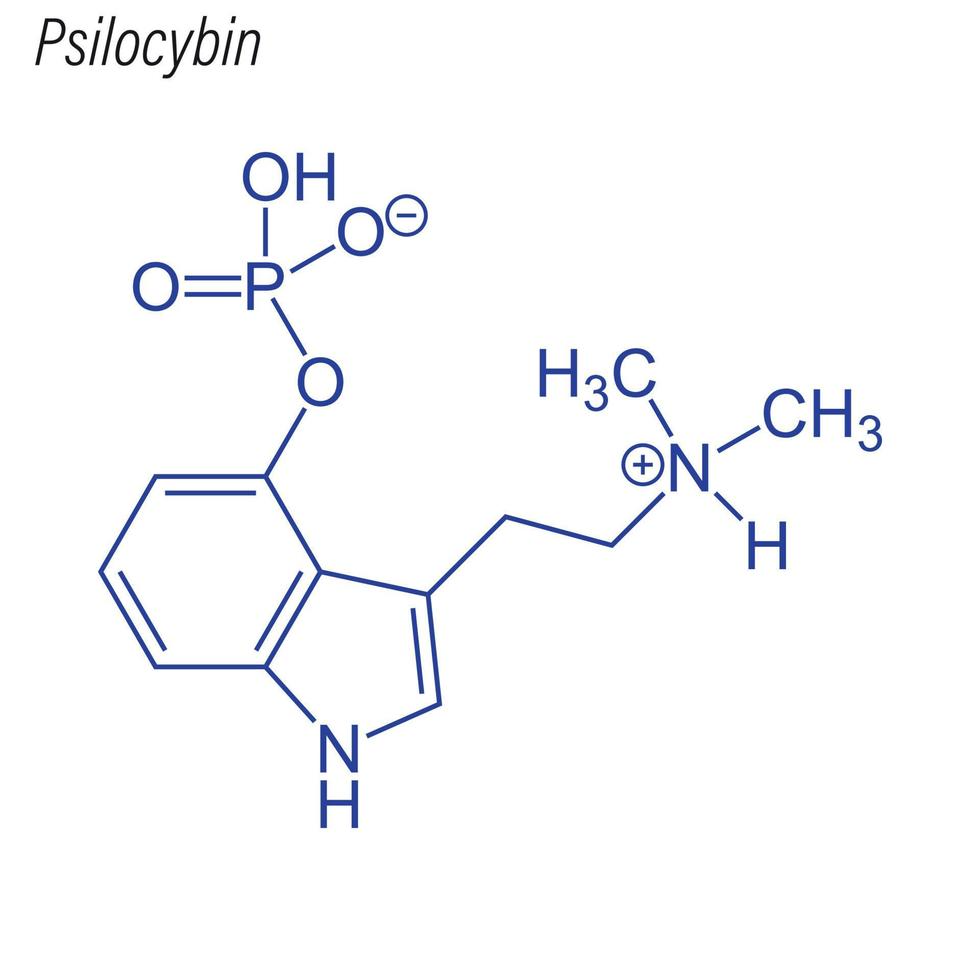
I am a Journey Clinical KAP Provider I offer a therapeutic modality called Ketamine-Assisted Psychotherapy (KAP), the use of ketamine as a complement to psychotherapy. I deliver KAP in my practice in partnership with an organization called Journey Clinical, which has a specialized medical team that determines eligibility for KAP, prescribes the ketamine, & supports us in monitoring outcomes.
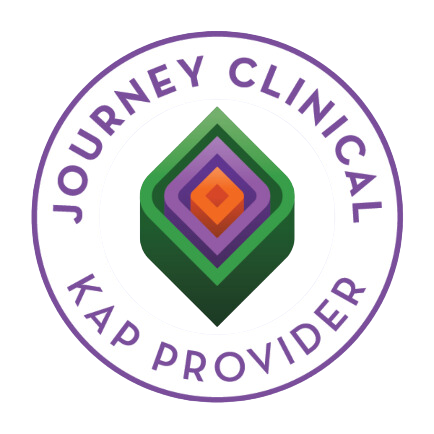
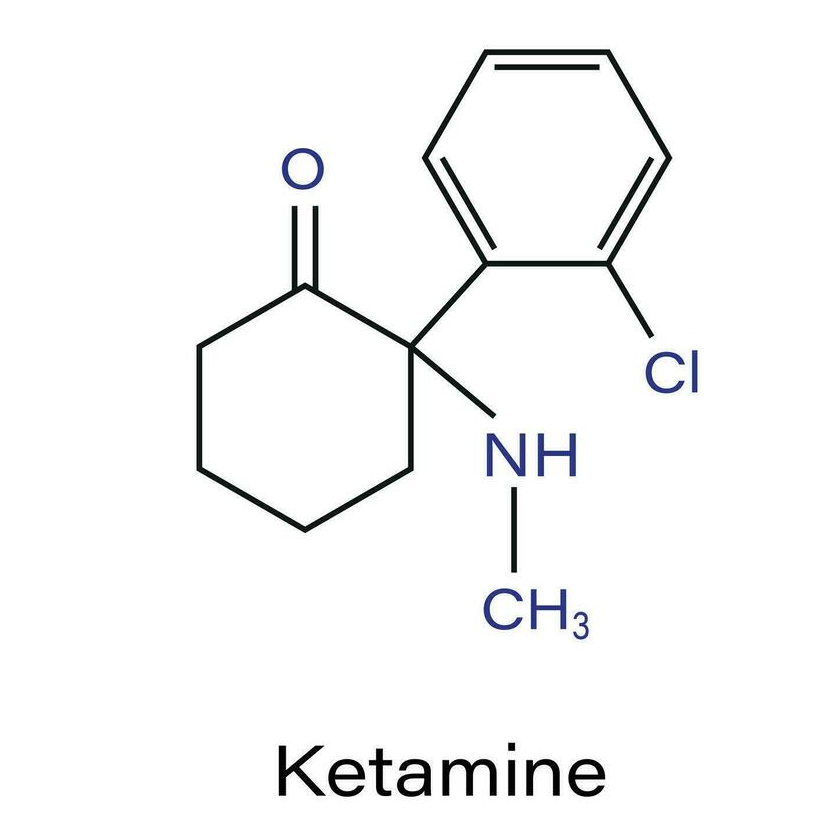
Ketamine-Assisted Psychotherapy
Ketamine-assisted psychotherapy (KAP) is a mental health treatment that combines the use of ketamine, a dissociative anesthetic, with psychotherapy to address various mental health conditions. It is used to treat a variety of mental health conditions, including depression, anxiety, and PTSD. Ketamine has rapidly-acting antidepressant and mood-enhancing effects, which can begin to take effect within 1-2 hrs. after treatment. It works by blocking the brain’s NMDA receptors as well as by stimulating AMPA receptors, which are thought to help form new synaptic connections and boost neural circuits that regulate stress and mood. Ketamine has also been shown to enhance overall neuroplasticity for lasting symptom improvement. Ketamine can be administered in a variety of ways, including IV infusion, intramuscular injection, nasal spray, and sublingual lozenges. At Journey Clinical we only use the sublingual lozenge form.
2. https://en.wikipedia.org/wiki/Ketamine-assisted_psychotherapy
Please e-mail me at [email protected] to discuss eligibility and next steps.
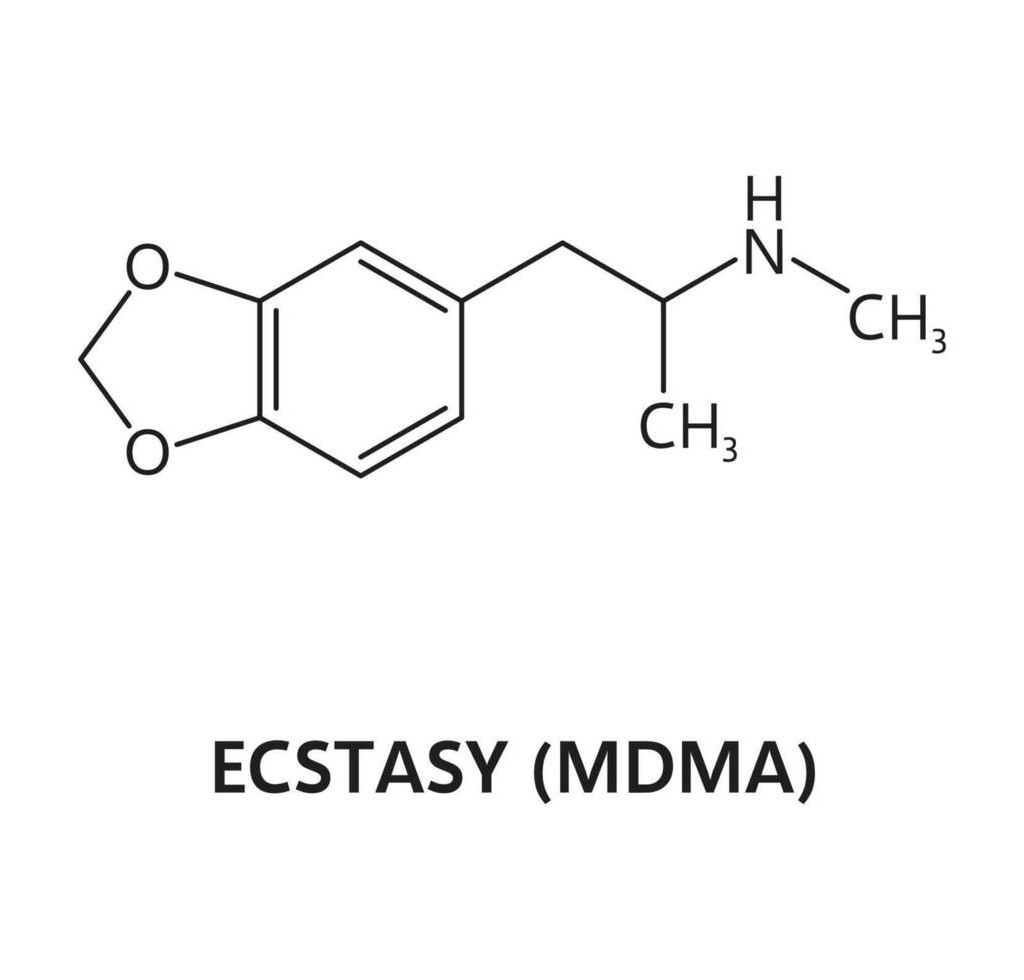
MDMA-
Currently MDMA (Ecstasy) is not legal in the United states and is currently undergoing clinical trials to attempt to achieve FDA approval.
MDMA-assisted psychotherapy is a therapeutic approach that combines the use of MDMA (3,4 methylenedioxymethamphetamine), a psychoactive drug, with psychotherapy to treat mental health conditions, particularly post-traumatic stress disorder (PTSD). Here’s a brief overview:
Preparation: Patients undergo thorough evaluations to determine their suitability for the treatment. This phase helps build trust between the patient and therapist.
Session: During the therapy session, patients receive a controlled dose of MDMA in a safe and monitored environment. The drug induces feelings of empathy, self-awareness, and reduced anxiety, which can help patients explore difficult emotions and memories.
Integration: After the session, patients work with their therapists to process and integrate the experiences and insights gained during the MDMA session. This helps them apply these insights to their daily lives.
MDMA-assisted psychotherapy has shown promise in treating PTSD, severe anxiety, and depression, especially when patients haven’t responded well to other treatments2. The drug’s effects can create an ideal setting for patients to open up about difficult emotions, do more self-reflection, and work through traumatic events.
It’s important to note that MDMA-assisted psychotherapy is still being researched and should only be conducted under the supervision of trained professionals in a controlled setting.
Ibogane.
Currently Ibogane is not legal in the United states
Ibogaine-assisted psychotherapy is a therapeutic approach that combines the use of ibogaine, a naturally occurring psychoactive substance, with psychotherapy to treat various mental health conditions, particularly addiction. Here’s a brief overview:
Preparation: Patients undergo thorough evaluations to determine their suitability for the treatment. This phase helps build trust between the patient and therapist.
Session: During the therapy session, patients receive a controlled dose of ibogaine in a safe and monitored environment. The drug induces intense, dream-like visions and deep introspective experiences, which can last several hours Integration: After the session, patients work with their therapists to process and integrate the experiences and insights gained during the ibogaine session. This helps them apply these insights to their daily lives 1 2.
Ibogaine-assisted psychotherapy has shown promise in treating opioid addiction, PTSD, and other mental health conditions. The drug’s effects can create an ideal setting for patients to confront underlying psychological issues and traumas that contribute to their addiction2.
It’s important to note that ibogaine-assisted psychotherapy is still being researched and should only be conducted under the supervision of trained professionals in a controlled setting 2.
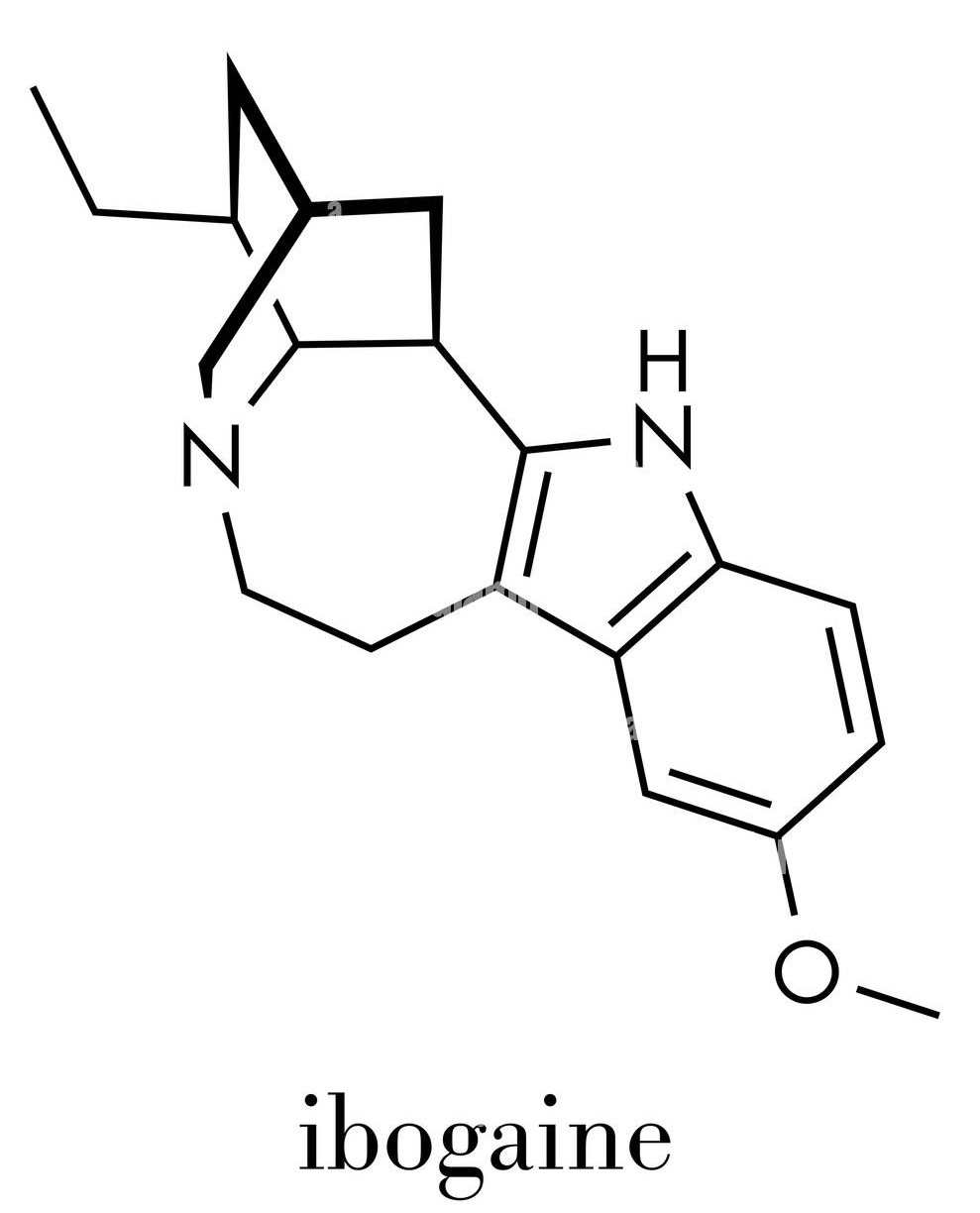
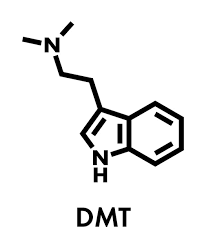
Ayahuasca.
A plant-based substance that is classified as a classic psychedelic Currently Ayahuasca is classified a Schedule I controlled substance and is not legal in the United States except for religious
exemptions for some specific churches. Ayahuasca is legal in some South and Central American countries and can be found used in spiritual settings with indigenous people.
Ayahuasca is commonly referred to as DMT (N,N-dimethyltryptamine).
Ayahuasca is most commonly used to treat mood disorders substance use disorders and PTSD.
Ayahuasca-assisted psychotherapy is a therapeutic approach that combines the use of ayahuasca, a traditional Amazonian plant medicine, with psychotherapy to promote deep emotional,
psychological, and spiritual healing.
Here’s a brief overview:
Preparation: Patients undergo thorough evaluations to determine their suitability for the treatment. This phase helps build trust between the patient and therapist.
Session: During the therapy session, patients consume ayahuasca in a safe and monitored environment. The brew, made from the Banisteriopsis caapi vine and Psychotria viridis leaves,
induces intense, dream-like visions and deep introspective experiences2.
Integration: After the session, patients work with their therapists to process and integrate the experiences and insights gained during the ayahuasca session. This helps them apply these
insights to their daily lives2.
Ayahuasca-assisted psychotherapy has shown promise in treating conditions like depression, anxiety, PTSD, and addiction2. The profound introspective experiences facilitated by ayahuasca
can help patients confront and heal from underlying psychological issues and traumas.
It’s important to note that ayahuasca-assisted psychotherapy should only be conducted under the supervision of trained professionals in a controlled setting.
LSD.
Currently LSD (lysergic acid diethylamide) is not legal in the United States.
LSD-assisted psychotherapy is a therapeutic approach that combines the use of LSD (lysergic acid diethylamide), a powerful psychedelic, with psychotherapy to treat various mental health conditions.
Here’s a brief overview:
Preparation: Patients undergo thorough evaluations to determine their suitability for the treatment. This phase helps build trust between the patient and therapist.
Session: During the therapy session, patients receive a controlled dose of LSD in a safe and monitored environment. The drug induces altered states of consciousness, which can help patients explore difficult emotions and memories.
Integration: After the session, patients work with their therapists to process and integrate the experiences and insights gained during the LSD session. This helps them apply these insights to their daily lives.
LSD-assisted psychotherapy has shown promise in treating conditions like anxiety, OCD, PTSD, and depression. The profound introspective experiences facilitated by LSD can help patients confront and heal from underlying psychological issues and traumas.
It’s important to note that LSD-assisted psychotherapy should only be conducted under the supervision of trained professionals in a controlled setting.
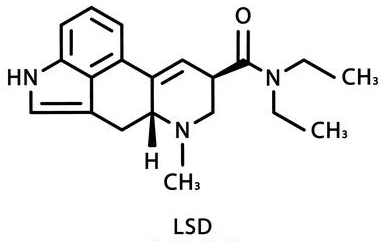
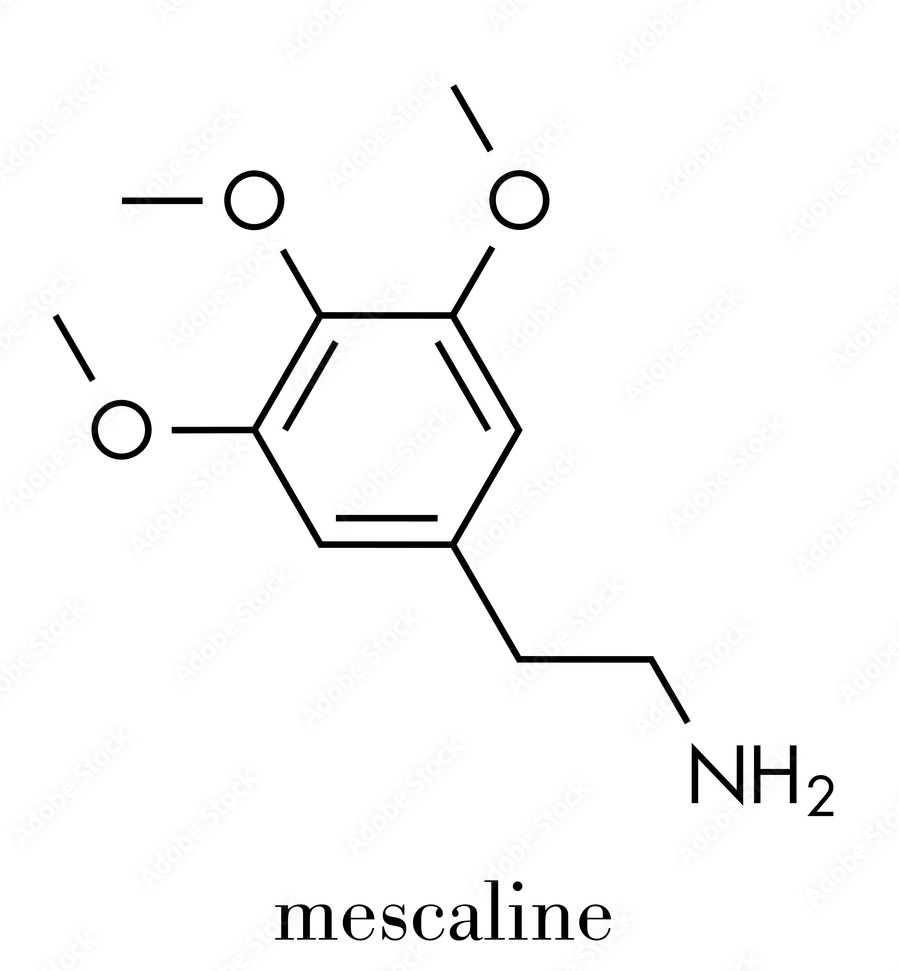
Mescaline.
Currently Mescaline is not legal in the United States.
Mescaline-assisted psychotherapy is a therapeutic approach that combines the use of mescaline, a naturally occurring psychedelic compound found in certain cacti, with psychotherapy to treat various mental health conditions.
Here’s a brief overview:
Preparation: Patients undergo thorough evaluations to determine their suitability for the treatment. This phase helps build trust between the patient and therapist.
Session: During the therapy session, patients receive a controlled dose of mescaline in a safe and monitored environment. The drug induces altered states of consciousness, which can help patients explore difficult emotions and memories.
Integration: After the session, patients work with their therapists to process and integrate the experiences and insights gained during the mescaline session. This helps them apply these insights to their daily lives.
Mescaline-assisted psychotherapy has shown promise in treating conditions like depression, anxiety, PTSD, and addiction2. The profound introspective experiences facilitated by mescaline can help patients confront and heal from underlying psychological issues and traumas.
It’s important to note that mescaline-assisted psychotherapy should only be conducted under the supervision of trained professionals in a controlled setting.
Peyote.
Currently Peyote (a mescaline containing cacti) is not legal in the United States.
Peyote is classified as a Schedule I controlled substance under the Controlled Substances Act in the United States, meaning it has a high
potential for abuse and no accepted medical use 1. However, there is an exception for its use in religious ceremonies by members of the Native American Church. In Texas, peyote can be legally sold to registered members of this church 2.
Peyote-assisted psychotherapy is a therapeutic approach that combines the use of peyote, a small, spineless cactus containing the psychoactive compound mescaline, with psychotherapy to treat various mental health conditions.
Here’s a brief overview:
Preparation: Patients undergo thorough evaluations to determine their suitability for the treatment. This phase helps build trust between the patient and therapist.
Session: During the therapy session, patients receive a controlled dose of peyote in a safe and monitored environment. The drug induces altered states of consciousness, which can help patients explore difficult emotions and memories.
Integration: After the session, patients work with their therapists to process and integrate the experiences and insights gained during the peyote session. This helps them apply these insights to their daily lives.
Peyote-assisted psychotherapy has shown promise in treating conditions like depression, anxiety, PTSD, and addiction. The profound introspective experiences facilitated by peyote can help patients confront and heal from underlying psychological issues and traumas2.
It’s important to note that peyote-assisted psychotherapy should only be conducted under the supervision of trained professionals in a controlled setting.
- https://www.dea.gov/sites/default/files/2020-06/Peyote%20and%20Mescaline-2020_0.pdf
- https://www.texasstandard.org/stories/in-the-only-state-where-selling-peyote-is-legal-the-cactus-is-threatened-and-still-controversial/
- https://www.ptsd.va.gov/professional/treat/txessentials/psychedelics_assisted_therapy.asp
- https://www.healthlawpolicy.org/2024/04/14/the-current-shroom-boom-a-recap-of-psychedelic-assisted-psychotherapy-across-the-united-states/
